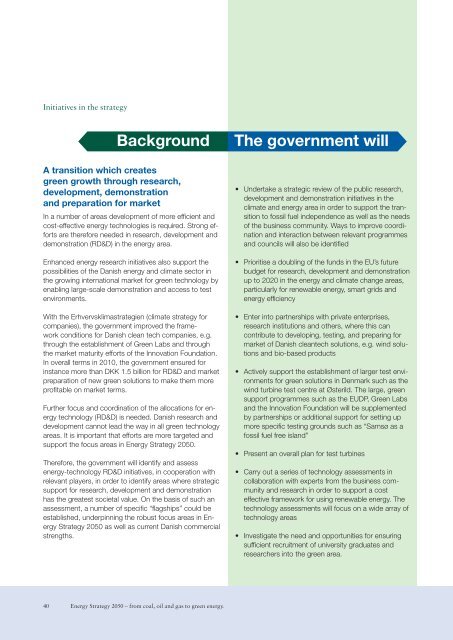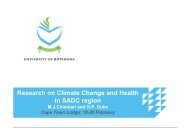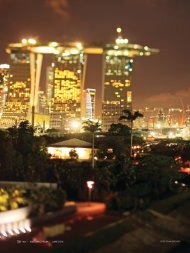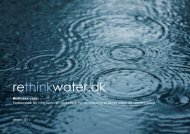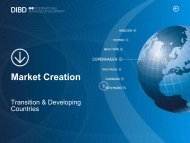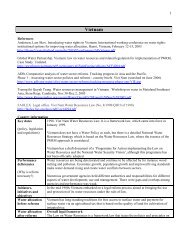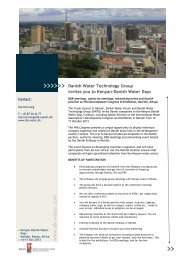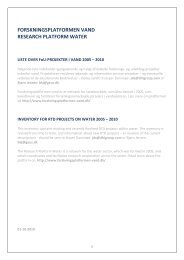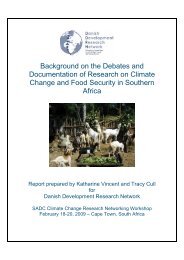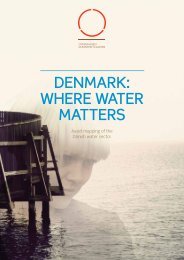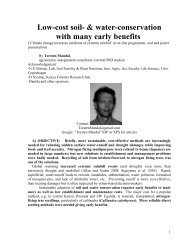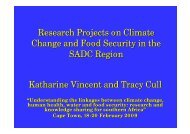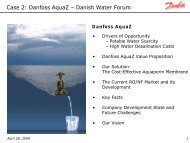energy strategy 2050 - Energy Europe
energy strategy 2050 - Energy Europe
energy strategy 2050 - Energy Europe
You also want an ePaper? Increase the reach of your titles
YUMPU automatically turns print PDFs into web optimized ePapers that Google loves.
Initiatives in the <strong>strategy</strong><br />
Background<br />
The government will<br />
A transition which creates<br />
green growth through research,<br />
development, demonstration<br />
and preparation for market<br />
In a number of areas development of more efficient and<br />
cost-effective <strong>energy</strong> technologies is required. Strong efforts<br />
are therefore needed in research, development and<br />
demonstration (RD&D) in the <strong>energy</strong> area.<br />
Enhanced <strong>energy</strong> research initiatives also support the<br />
possibilities of the Danish <strong>energy</strong> and climate sector in<br />
the growing international market for green technology by<br />
enabling large-scale demonstration and access to test<br />
environments.<br />
With the Erhvervsklimastrategien (climate <strong>strategy</strong> for<br />
companies), the government improved the framework<br />
conditions for Danish clean tech companies, e.g.<br />
through the establishment of Green Labs and through<br />
the market maturity efforts of the Innovation Foundation.<br />
In overall terms in 2010, the government ensured for<br />
instance more than DKK 1.5 billion for RD&D and market<br />
preparation of new green solutions to make them more<br />
profitable on market terms.<br />
Further focus and coordination of the allocations for <strong>energy</strong><br />
technology (RD&D) is needed. Danish research and<br />
development cannot lead the way in all green technology<br />
areas. It is important that efforts are more targeted and<br />
support the focus areas in <strong>Energy</strong> Strategy <strong>2050</strong>.<br />
Therefore, the government will identify and assess<br />
<strong>energy</strong>-technology RD&D initiatives, in cooperation with<br />
relevant players, in order to identify areas where strategic<br />
support for research, development and demonstration<br />
has the greatest societal value. On the basis of such an<br />
assessment, a number of specific “flagships” could be<br />
established, underpinning the robust focus areas in <strong>Energy</strong><br />
Strategy <strong>2050</strong> as well as current Danish commercial<br />
strengths.<br />
• Undertake a strategic review of the public research,<br />
development and demonstration initiatives in the<br />
climate and <strong>energy</strong> area in order to support the transition<br />
to fossil fuel independence as well as the needs<br />
of the business community. Ways to improve coordination<br />
and interaction between relevant programmes<br />
and councils will also be identified<br />
• Prioritise a doubling of the funds in the EU’s future<br />
budget for research, development and demonstration<br />
up to 2020 in the <strong>energy</strong> and climate change areas,<br />
particularly for renewable <strong>energy</strong>, smart grids and<br />
<strong>energy</strong> efficiency<br />
• Enter into partnerships with private enterprises,<br />
research institutions and others, where this can<br />
contribute to developing, testing, and preparing for<br />
market of Danish cleantech solutions, e.g. wind solutions<br />
and bio-based products<br />
• Actively support the establishment of larger test environments<br />
for green solutions in Denmark such as the<br />
wind turbine test centre at Østerild. The large, green<br />
support programmes such as the EUDP, Green Labs<br />
and the Innovation Foundation will be supplemented<br />
by partnerships or additional support for setting up<br />
more specific testing grounds such as “Samsø as a<br />
fossil fuel free island”<br />
• Present an overall plan for test turbines<br />
• Carry out a series of technology assessments in<br />
collaboration with experts from the business community<br />
and research in order to support a cost<br />
effective framework for using renewable <strong>energy</strong>. The<br />
technology assessments will focus on a wide array of<br />
technology areas<br />
• Investigate the need and opportunities for ensuring<br />
sufficient recruitment of university graduates and<br />
researchers into the green area.<br />
40<br />
<strong>Energy</strong> Strategy <strong>2050</strong> – from coal, oil and gas to green <strong>energy</strong>.


